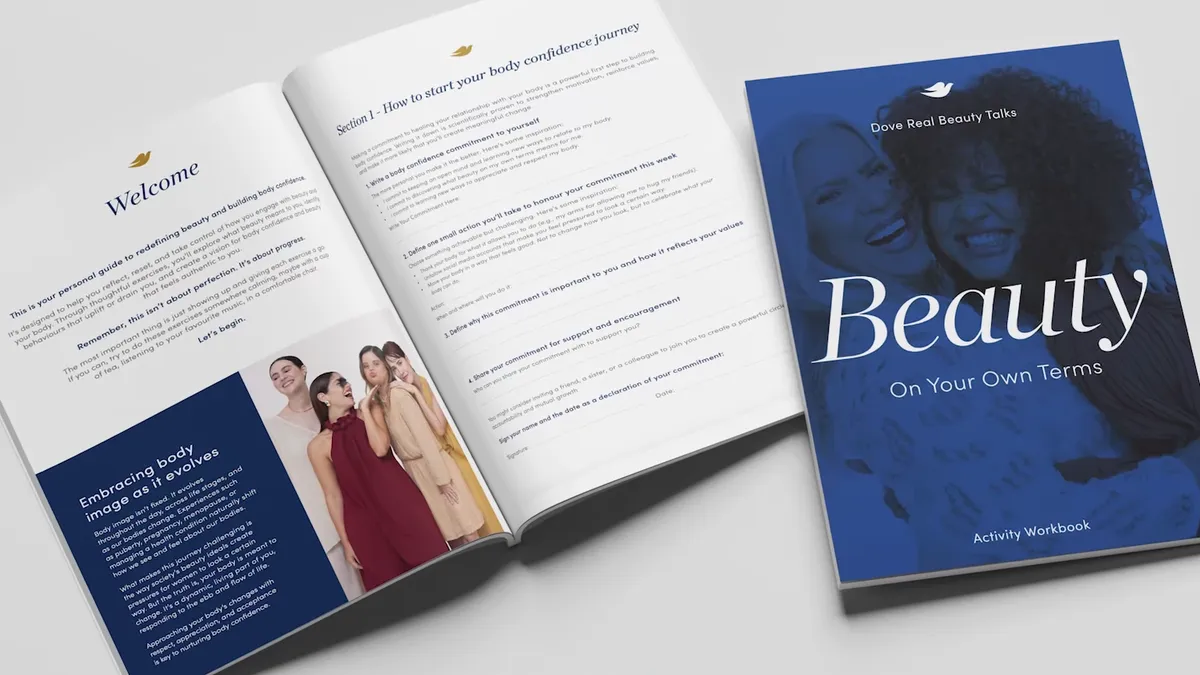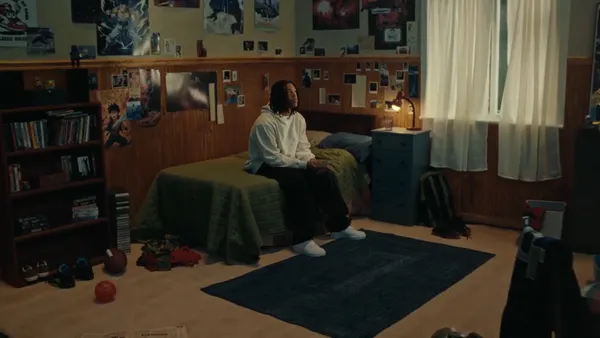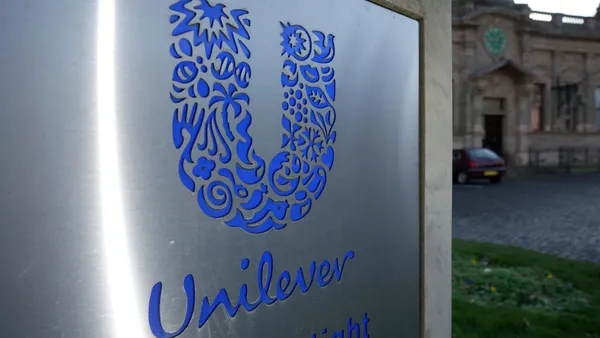Dive Brief:
- Dove unveiled its first body confidence program for women, timing the launch to the period when many set New Year’s resolutions that focus on weight loss, dieting and other beauty-oriented goals, according to a press release.
- The online program looks to combat what the CPG marketer calls “the pursuit of perfect,” or the chase for an idealized image that can harm self-esteem. Prior research conducted by Dove found that millennial women have the lowest body confidence compared to other generations.
- The Dove Self-Esteem Project for Women lives on the brand’s website and offers videos, an activity workbook and other tips. Dove is also encouraging followers to write down and then rip up resolutions on sticky notes and post their videos to TikTok as part of a #NewYearsUnresolution social media push.
Dive Insight:
A new year means a new body confidence-focused initiative from Dove, which for over two decades has built out a “Real Beauty” platform that challenges unhealthy image standards for women. Rather than running a conventional paid advertising campaign, the Unilever-owned brand is entering 2025 with an online educational resource that intends to help consumers change their perceptions of New Year’s resolutions that tend to center on goals like dieting, weight loss and appearing more youthful.
The Dove Self-Esteem Project for Women, the first of its kind from Dove, covers four core topics: Healing the relationship with one’s own body; defining body confidence and what it looks like in day-to-day life; addressing what influences and impacts body confidence, including external societal pressures; and redefining beauty on one’s own terms. Naturally, Dove products could play a role on some of those self-empowerment journeys.
The initiative follows findings published by Dove last year that revealed millennial women, a core target audience, have particularly poor self-esteem. The Real State of Beauty Report, the most extensive research published by the brand to date, also showed that one-third of women surveyed would trade a year of their life to achieve their conception of a “perfect” body. Furthermore, 69% said they would avoid social engagements due to low confidence in their appearance, contributing to a sense of alienation.
Along with the online program rollout, Dove is pushing consumers to put themselves out there with a #NewYearsUnresolution drive on TikTok, an app known for setting beauty and cosmetics trends among demographics like Gen Z and millennials.
Other brands are stepping up efforts to tackle New Year’s resolutions that can be unrealistic. RXBar, the protein snack bar that boasts a simple list of ingredients, is touring around a B.S. Blocker Truck as a counter to “New Year, New You” marketing and asking consumers to report ads they perceive as toxic, which the vehicle will try to block out.
Dove is coming off a year of change in its marketing leadership. Alessandro Manfredi, a longtime Unilever marketer and an architect of “Real Beauty,” departed the personal care company in July.














